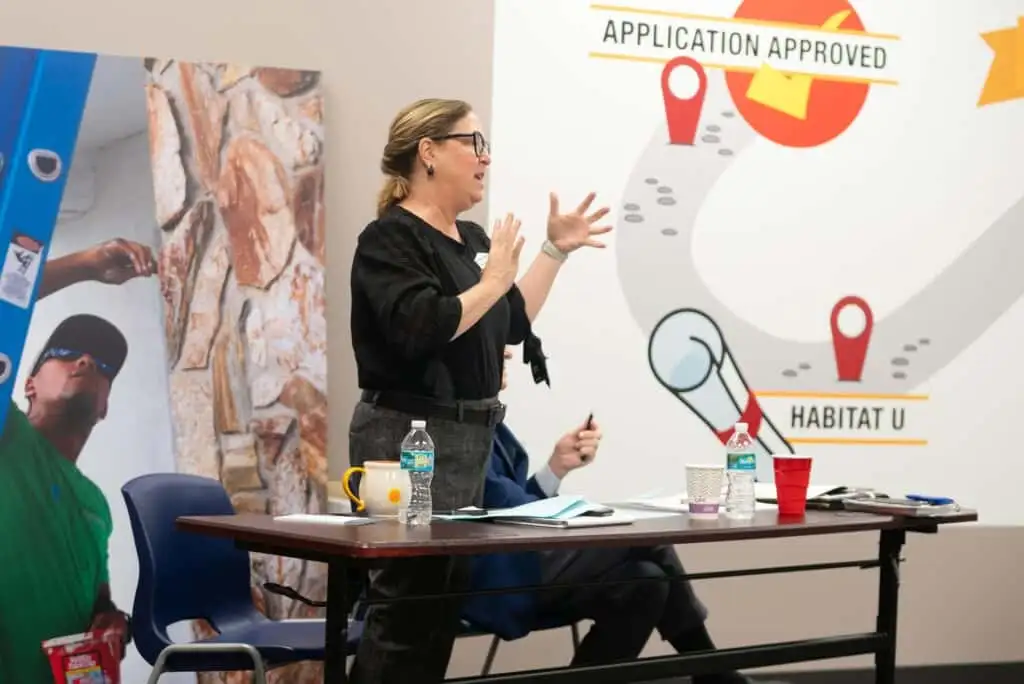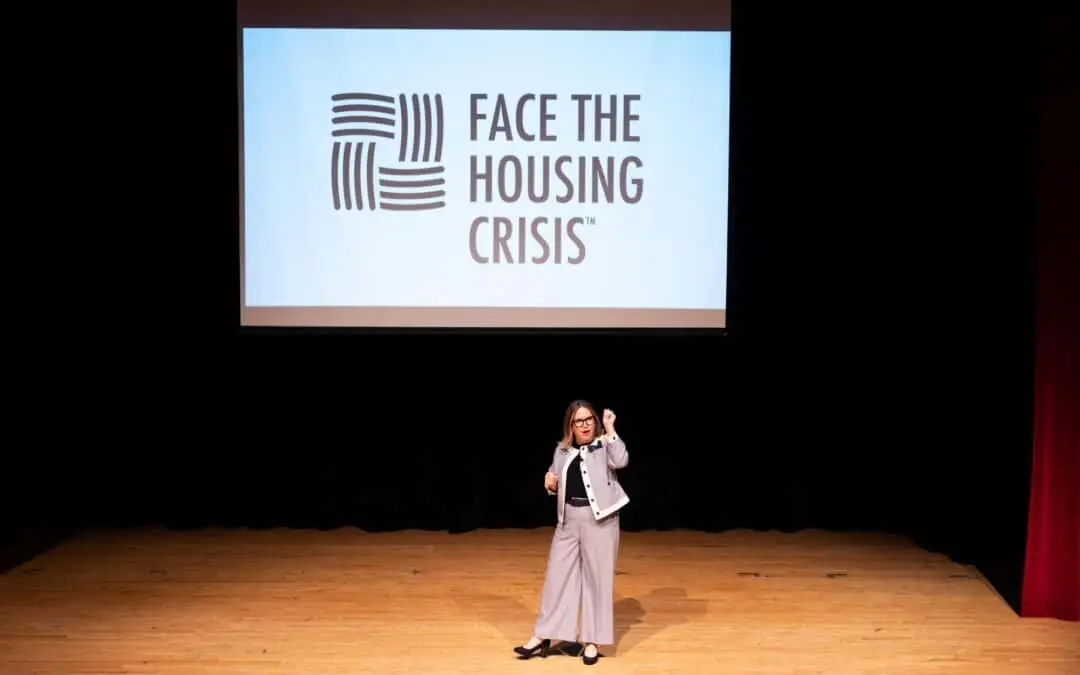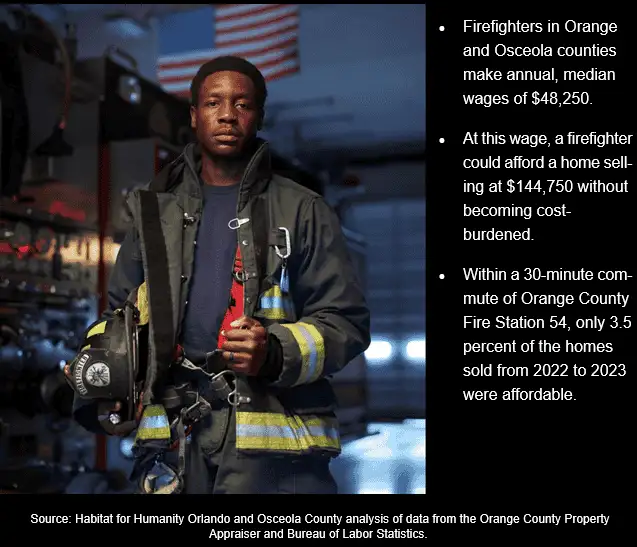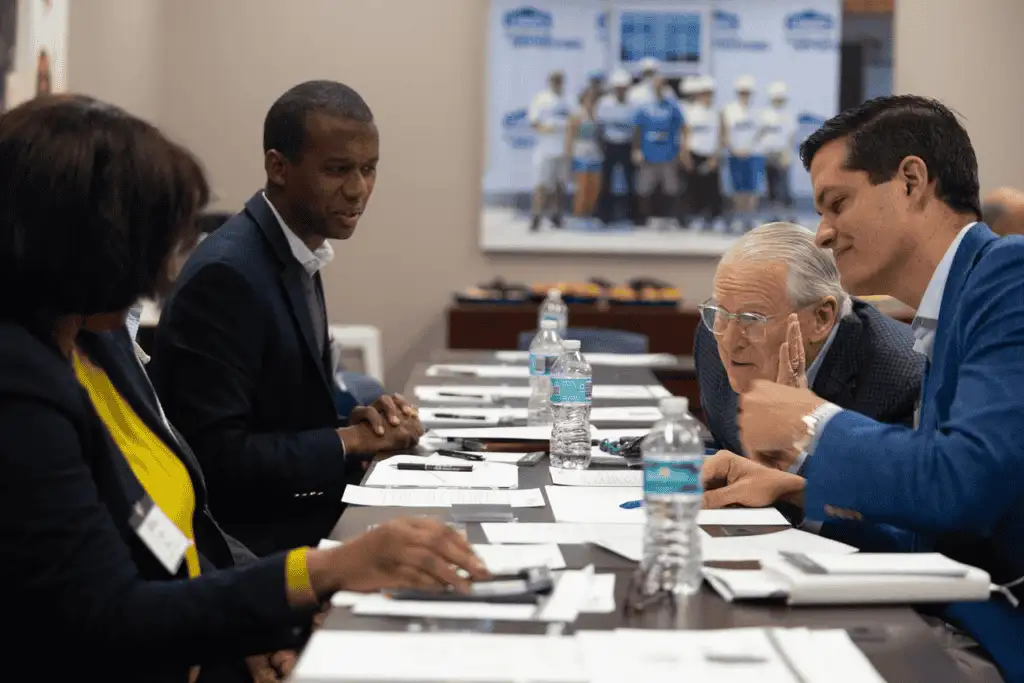A year ago, Habitat for Humanity Greater Orlando & Osceola County launched a multifaceted project as a catalyst for collective action addressing the housing crisis in Central Florida. The first year focused on establishing shared understanding.
Thank you for your continued involvement and staying informed about this work. Now let’s consider three milestones we’ve reached in our work together, alongside a preview of what to expect in year two.
1. The Face the Housing Crisis™ campaign changed perceptions
Our public-awareness campaign Face the Housing Crisis™ successfully changed public perceptions about who is impacted by the housing crisis. The proportion of residents in Orange and Osceola counties who recognized the housing system as a threat to the region’s quality of life nearly doubled from 26% of survey respondents to 49%. Highlighting its impact on essential workers such as teachers, postal workers, first responders, and healthcare professionals, the campaign paired stories of real Central Floridians and Habitat homeowners with research highlighting the lack of affordable housing options in the region.
Drive time analysis centered on some of the largest employer locations in Central Florida showed how essential workers making the median wage for their profession would not be able to afford a home within a reasonable commute of the communities they serve. An example of the analysis results is shown in the image above. You can listen to the personal story of a Central Florida first responder, Anesu, by visiting facethehousingcrisis.org.
2. Published a research-backed framework for change
As part of its Cornerstone Housing™ Initiative, the Face the Housing Crisis™ campaign laid the groundwork for a comprehensive approach to change aimed at tackling the housing crisis through systems innovation. The Cornerstone Housing™ Initiative is designed to address the housing crisis as a systemic failure rather than a series of issues with isolated solutions.
Put another way, the Cornerstone Housing™ Initiative recognizes that there is no silver bullet solution to the housing crisis. On their own, the solutions of building more housing, raising wages, re-zoning land, etc. would not solve the housing crisis. This past year, Habitat Orlando & Osceola identified systems change as a long-term goal for success and explained this goal in a Community Charter for Collective Leadership (the charter). The charter outlines how using a collective impact model to guide systems-change efforts will be critical to sustain long-term impact on the housing system.
This charter is backed by another document Habitat Orlando & Osceola published, the Face the Housing Crisis™ Research Compendium, a 300+ page review of the academic literature surrounding housing’s role as the cornerstone of community progress, the challenges of dealing with wicked problems and complex systems, and best practices for integrating policy change.
3. More than 80 delegates learned systems thinking
The Charter and Compendium clearly note how the work of systems change requires fostering shared understanding and building skills in systems thinking. During a series of five sessions, more than 80 business, nonprofit, and government leaders (Delegates) were introduced to systems thinking and honed these skills.
Delegates developed discipline needed to avoid searching for silver bullet solutions; discovered points of leverage for change; and found best practices could be borrowed from other system failures and applied to the housing crisis. Scaling the delegate journey will be critical to further success and a key part of our work in year two.
Looking ahead

FTHC Work Group Session 03.27.24
In year two, expect to continue seeing Habitat Orlando & Osceola pioneer a process for systems change built on the tenants of collective impact.
We will continue to build awareness. The work of fostering understanding is never truly done. We need more people to join the journey and stay informed about the systems change process and trends in Central Florida’s housing market.
We will innovate measurement tools. Systems change will require the alignment of resources across multiple stakeholders, from nonprofit organizations to government and funders, and better measurement tools for measuring the impact of those resources. Currently, nonprofits often measure their success through outputs – such as homes built, pounds of food distributed, counseling sessions provided, etc. Capturing the systemic ripple effects of these interventions remains a challenge. In year two, expect to see announcements about new ways to measure the outcomes of increasing affordable housing access on households and neighborhoods.
Finally, we’ll further our work together by applying systems thinking to the development of a policy portfolio as the foundation of community engagement. Expect to see existing and proposed housing policies in a new light and brought to the broader community for candid assessments in discovering gaps in understanding while building bridges to collective action.
You can help us achieve these things by sharing this with someone who you think would be interested in the work of systems change as an invitation to sign up here to stay informed.
Get engaged
If you wish to become a Delegate of this work, please email Phoebe Fleming, director of research and learning, at pfleming@habitatorlando.org.
We encourage you to raise your hand and be part of building a shared understanding about the wicked nature of the housing crisis.
Learn more at FaceTheHousingCrisis.org




